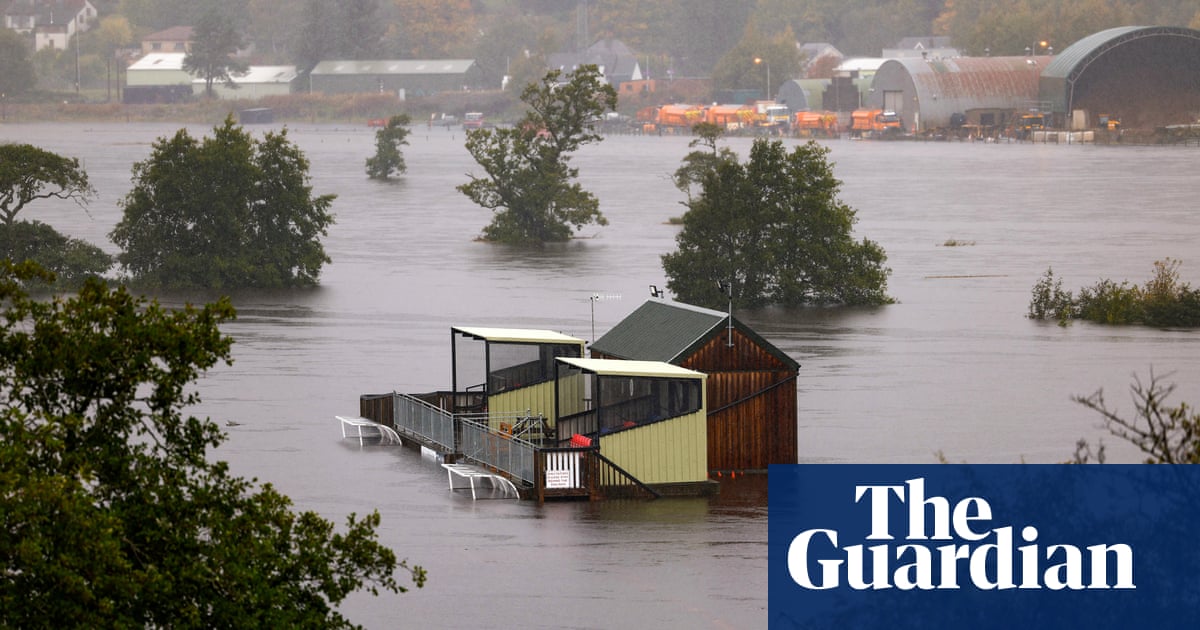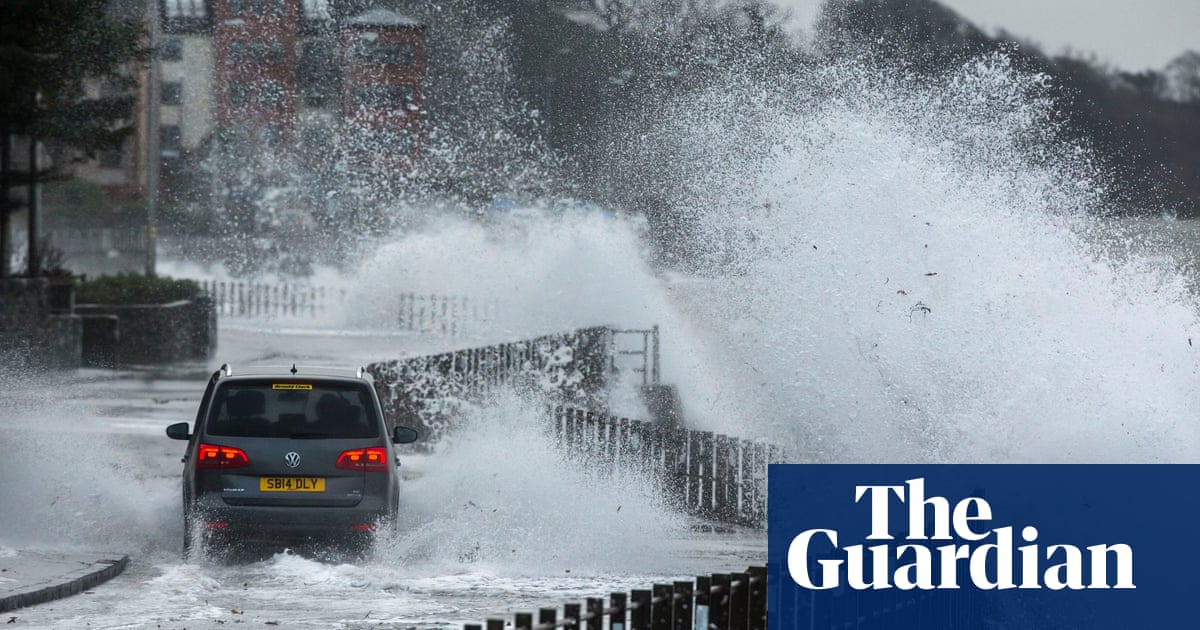
Parts of the UK have been battered by strong winds and heavy rain, as Storm Ashley – the first named storm of the season – swept in.
The Met Office said the storm was likely to bring a threat of injuries and danger to life, with winds of up to 80mph and heavy rain expected in some areas.
A yellow warning for wind came into effect at 3am on Sunday for the whole of Scotland and Northern Ireland, as well as parts of north-west England and Wales. It will run until midnight.
Killowen in County Down, Northern Ireland, recorded the strongest gusts of 81mph, but the Met Office said stronger winds were expected later on Sunday.
An amber warning for the north-west of Scotland was issued from 9am until midnight, with the Met Office warning: “Injuries and danger to life is likely from large waves and beach material being thrown on to coastal roads, sea fronts and properties.”
The Met Office meteorologist Dan Stroud said very strong and severe gales, combined with high spring tides, could also result in very large waves. The north of Scotland will remain under a yellow warning for wind from midnight until 9am on Monday.
Farther south, the Met Office issued a yellow warning for the south-west of England and south Wales until midday on Sunday, warning that travel might be disrupted and power supplies interrupted, with possible flooding.
The Environment Agency’s website listed 41 active flood warnings on Sunday morning, meaning flooding was expected, and 132 flood alerts, meaning flooding was possible, with warnings in place for areas of the River Severn, the south Cornwall coast, and the Wye estuary.
The Met Office said Sunday would be a “widely windy day” with storm-force winds in the north-west, and rain and gusty winds moving east, although sunny spells were expected later.
“Parts of western Scotland could see gusts of 70-80mph during the afternoon,” the meteorologist Ellie Glaisyer said, adding: “It will turn drier and brighter across much of England and Wales with some sunny spells during the afternoon.”
Ten of thousands of homes experienced power cuts across the island of Ireland.
The stormy conditions also saw several flights cancelled, including at airports in Dublin and Belfast.
In the Republic of Ireland, ESB Networks said 53,000 customers were without power shortly after 5pm on Sunday.
Mayo, Galway, Sligo, Clare, Cork, Kerry and Dublin were the worst affected counties.
In Northern Ireland, NIE Networks said that at 5.30pm approximately 4,000 customers were without power.
It said power had been restored to about 2,000 customers who had lost supply.
Road users in Scotland have been advised to avoid unnecessary travel, and Sunday’s annual Great South Run in Portsmouth, Hampshire, has been cancelled because of weather-related safety concerns. Flights between Britain and Belfast City airport have also been cancelled until at least Sunday afternoon, with flights to and from Dublin, Glasgow, Aberdeen and Edinburgh airports also affected.
Police Scotland has advised motorists to plan ahead and avoid unnecessary travel where possible, with a strong likelihood of disruption on roads, while Transport Scotland has warned of likely delays to public transport, including the country’s ferry network.
ScotRail said some services would be subject to precautionary speed restrictions, while the ferry operator CalMac said many of its services on the west coast of Scotland had been cancelled, with others liable to be disrupted.
Ch Supt Hilary Sloan, Police Scotland’s head of road policing, said: “Make sure your vehicle has sufficient fuel and is completely roadworthy, with tyre pressure and tread meeting legal requirements.
“Ensure your mobile phone is fully charged in the event you need to call for assistance, and if it is likely you may be within your vehicle for long periods of time, take additional clothing and water with you.”
Stroud said strong, gale-force winds were to continue into Monday morning, meaning “fallen debris and trees” could affect commuters travelling to work at the start of the week.
Winds are expected to ease throughout Monday, with rain moving into the south-east, although the north is expected to remain blustery for much of the week.
Forecasters from the UK, Ireland and the Netherlands work together to name storms in western Europe. Storm Ashley was named by Ireland’s Met Éireann.












